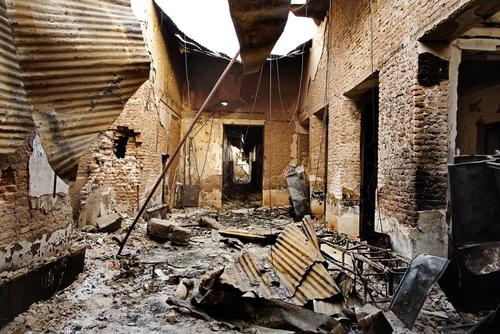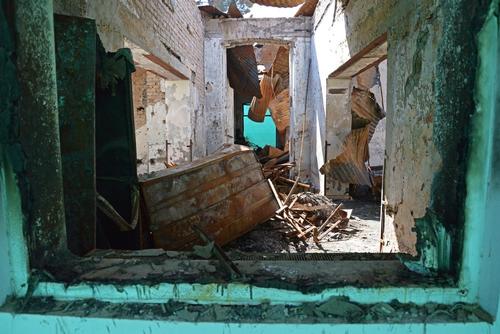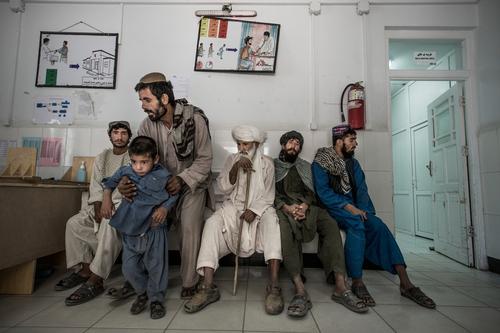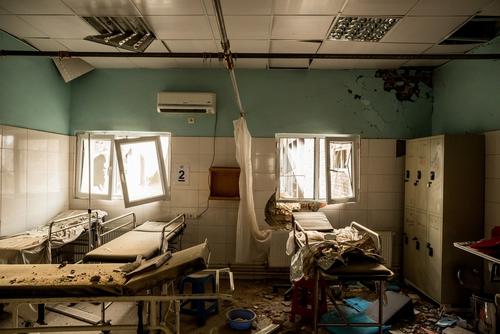NEW YORK, APRIL 29, 2016 -- The United States military today released its investigative report on the attack on the Médecins Sans Frontières (MSF) trauma hospital in Kunduz, Afghanistan on 3 October 2015. The attack killed 42 people, including 14 MSF staff members, and wounded dozens more.
MSF was only able to access the report today, when it was made publicly available online, following a public briefing by the head of U.S. Central Command, General Joseph Votel. Yesterday, MSF received a two-hour verbal briefing from Gen. Votel and his team on the main findings and recommendations of the U.S. military investigation. MSF will take the time necessary to examine the U.S. report, and to determine whether or not the U.S. account answers the many questions that remain outstanding seven months after the attack.
MSF acknowledges the U.S. military’s efforts to conduct an investigation into the incident. Today, MSF and other medical care providers on the front lines of armed conflicts continually experience attacks on health facilities that go un-investigated by parties to the conflict. However, MSF has said consistently that it cannot be satisfied solely with a military investigation into the Kunduz attack. MSF’s request for an independent and impartial investigation by the International Humanitarian Fact Finding Commission has so far gone unanswered.
Today’s briefing amounts to an admission of an uncontrolled military operation in a densely populated urban area, during which U.S. forces failed to follow the basic laws of war.Meinie Nicolai, MSF President
The hospital was fully functioning at the time of the airstrikes. The U.S. investigation acknowledges that there were no armed combatants within – and no fire from – the hospital compound.
“The threshold that must be crossed for this deadly incident to amount to a grave breach of international humanitarian law is not whether it was intentional or not,” said Nicolai. “With multinational coalitions fighting with different rules of engagement across a wide spectrum of wars today, whether in Afghanistan, Syria, or Yemen, armed groups cannot escape their responsibilities on the battle
“Today’s briefing amounts to an admission of an uncontrolled military operation in a densely populated urban area, during which U.S. forces failed to follow the basic laws of war,” said Meinie Nicolai, MSF President. “It is incomprehensible that, under the circumstances described by the U.S., the attack was not called off.”
The hospital was fully functioning at the time of the airstrikes. The U.S. investigation acknowledges that there were no armed combatants within – and no fire from – the hospital compound.
“The threshold that must be crossed for this deadly incident to amount to a grave breach of international humanitarian law is not whether it was intentional or not,” said Nicolai. “With multinational coalitions fighting with different rules of engagement across a wide spectrum of wars today, whether in Afghanistan, Syria, or Yemen, armed groups cannot escape their responsibilities on the battlefield simply by ruling out the intent to attack a protected structure such as a hospital.”
The nature of the deadly bombing of the MSF Kunduz Trauma Centre, and the recurring attacks on medical facilities in Afghanistan, demand from all parties to the conflict a clear reaffirmation of the protected status of medical care in the country. MSF must obtain these necessary assurances in Afghanistan before making any decision on if it is safe to re-start medical activities in Kunduz.
field simply by ruling out the intent to attack a protected structure such as a hospital.”
The nature of the deadly bombing of the MSF Kunduz Trauma Centre, and the recurring attacks on medical facilities in Afghanistan, demand from all parties to the conflict a clear reaffirmation of the protected status of medical care in the country. MSF must obtain these necessary assurances in Afghanistan before making any decision on if it is safe to re-start medical activities in Kunduz.
We can’t put our teams back to work ... without first having strong and unambiguous assurances ... that this will not happen again.
“We can’t put our teams – including our colleagues who survived the traumatic attack – back to work in Kunduz without first having strong and unambiguous assurances from all parties to the conflict in Afghanistan that this will not happen again,” said Nicolai. “We need explicit agreement from all parties to the conflict, including the Afghan authorities and the U.S. military, that there will be no military interference or use of force against MSF medical facilities, personnel, patients and ambulances. Equally, we must be assured that MSF staff can safely provide medical care based solely on medical needs, without discrimination, and regardless of their religious, political or military affiliations. Every day that passes without securing these assurances adds to the death toll from the attack, given the loss of lifesaving medical services to people in the region.”
The administrative punishments announced by the U.S. today are out of proportion to the destruction of a protected medical facility, the deaths of 42 people, the wounding of dozens of others, and the total loss of vital medical services to hundreds of thousands of people. The lack of meaningful accountability sends a worrying signal to warring parties, and is unlikely to act as a deterrent against future violations of the rules of war.
At the same time, it has become clear that the victims and their families have neither the option to pursue legal action against the U.S. military, either in Afghanistan or in the US, nor to claim compensation for loss of life and livelihood. This has only compounded the devastation of the attack.






